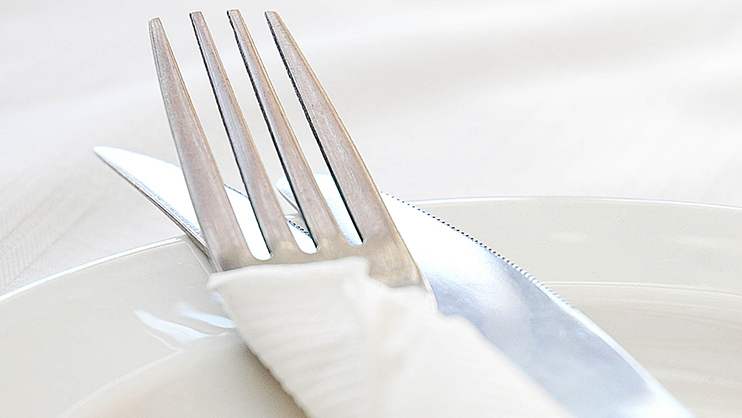Eating out
Carers from our online community discuss tips for dealing with difficult situations when eating out.
Kazzy2016 says,
‘We love going out for lunch or afternoon tea but this is now becoming less enjoyable. I care for a parent, she has started getting upset by crowded areas, suddenly gets angry if strangers brush past us and is intolerant of noisy children in cafes or shops. I find it difficult when she suddenly lashes out verbally and people then turn on her and me for what she might say.
‘Our local pub and a local coffee shop know us and it is fine going there but Alzheimer’s is making going out less enjoyable and incredibly stressful.’
‘At the end of a meal, John often refuses to move and grips the edge of the table,' says marionq.
marionq says,
‘At the end of a meal, John often refuses to move and grips the edge of the table. Speaking firmly to him does not work, pleading politely does not work, the table being cleared and other people waiting for it does not work.
‘I try talking softly and persuasively, thinking up good reasons to go, for example we have a bus or train to catch, someone is waiting for us outside. It can go on like that for 20 minutes or so until I come up with a case that suits him.’
Risa says,
‘We would always book for when the restaurant opened so we could choose the most secluded table possible (to avoid too much noise and distraction) and hopefully wouldn't have to wait too long for our meals as we were the first customers. We also pre-planned what we wanted to order to avoid delay and stressing Mum out over making a selection (we tended to have the same meal, which also speeds things up). We didn't linger either, just main meal and dessert then home for coffee.
‘Now, we go to coffee shops for a drink and a cake during the week when it is quieter. That way if Mum has had enough after 10 minutes and is agitating to leave, it is easy to drink up and go. If we want a family meal, it is fish and chips delivered at home and if Mum doesn't want to participate then it's no big deal.’
‘My wife no longer looks at the menu so I have to make suggestions,' says northumbrian_k.
northumbrian_k says,
‘My wife no longer looks at the menu so I have to make suggestions; she sometimes eats voraciously and asks for more on the way home, or decides after a few mouthfuls that her usually favourite meal is not what she wants. We can no longer have a sensible conversation about anything in restaurants and she is prone to making indiscreet remarks. Why pay for added stress that takes away all the pleasure?
‘We do go to coffee shops during the day and have a few favourites where we can also take our dog. My best tips are to avoid busy times, try to go to places that offer lighter meals, avoid alcohol if possible and, if a conversation starts with the people at the next table, sit back and enjoy the few minutes of respite.’
Next steps
- Do you have tips about helping a person with dementia enjoy Christmas or other festivities? Email us your advice to share.
- Join our online community, Talking Point.




Neel
saysI'd like to support a carer when going out with their loved one who may struggle.